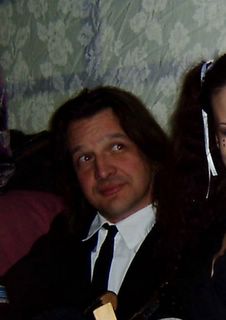Anonymity Should Be Protected, And Unnecessary
Last week Tony Kontzer expressed concerns over a presentation he heard about the Stealth Surfer drive:
"... a pocket USB storage device that's commercially available, highly affordable, and undoubtedly one of the biggest pains in the rear end ever to hit cybercrime-fighting. Pre-loaded with a Mozilla Firefox browser and an assortment of clever little applications, including one called the Anonymizer that uses SSL encryption to hide all IP activity, the Stealth Surfer allows a PC to be used for browsing, E-mail, and God-knows-what-other online activities with nary a shred of evidence left behind. That's because all the caching, history, cookies, keystrokes, and data is stored on the device. Even the applications run entirely on the device, making them invisible to network administrators. (As you can see, this would also be an extremely handy device for anyone wanting to job hunt on company time.)
"A few cops, images of evidence walking away dancing in their heads as they listened, let out sighs and whews and sheeshes and any other low-key indicator of shock and dismay they could muster."
I'm sufficiently mistrustful of authority that I'm glad that gadgets like the Stealth Surfer exist.
By definition, anonymity is used to hide behavior that the user doesn't want other people to know about. In a free society, those activities are usually immoral and sometimes illegal. They can include criminal activities such as child pornography, terrorism, and drug trafficking. They also include activities that are legal but that many people would like to eliminate, such as viewing porn involving adults.
So it's easy to see why some people would view anonymity as a threat.
But even in a free society, anonymity is often used to protect beneficial activities. People go online to learn about addictions, sexual problems, diseases they fear they might have. We might prefer that they learn about these things through more open channels--we might prefer that the teenager who feels unwholesome sexual longings go to a parent, guardian, clergyman, or teacher to discuss the issues--but sometimes people are afraid. And anonymity can help a person feel less afraid, less alone, and get the courage to step forward and face a problem head-on.
So far, I've been talking about anonymity in free societies. Totalitarianism brings another layer of complication into the discussion. Anonymity is essential to dissent and planning political change in totalitarian regimes. Here in America, we take for granted the right to go on the Internet, denounce powerful people as thieves, liars, and cowards, and proceed on with our day without fear of any recrimination at all (except for nastygrams from people who like the leadership, of course). But in other countries, you can get thrown into prison for engaging in political speech the government doesn't like. In those nations, anonymity is an essential tool for political change.
Moreover, the ability to be anonymous, if we so choose, is what helps keep free societies like America free.
So I for one am glad to know that there are tools out there like Stealth Surfer. Like the earthquake survival kit in the garage, I have no plans to ever use the thing, but it's comforting to know it's there if I ever need it.


0 Comments:
Post a Comment
<< Home